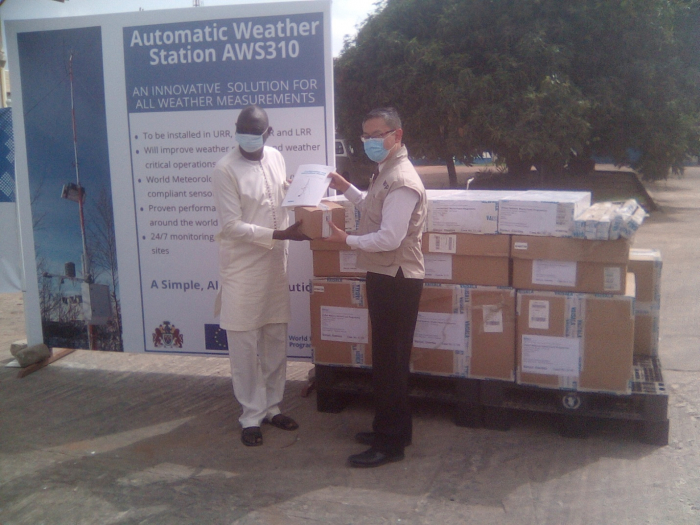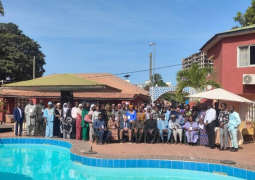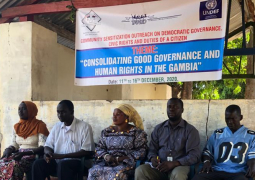
The automated weather stations were presented to the government through the Ministry of Fisheries and Water Resources. The items will be installed at the Upper River, Central River, North Bank and Lower River regions. The items will improve weather services and weather critical operations in The Gambia as well ensure twenty-four monitoring, access and control of all sites.
The WFP was assigned to hand over the materials due to its continuous efforts on nationwide food distributions or the school feeding programmes.
Presenting the items at WFP head office in Kanifing, Yasuhiro Tsumura, WFP representative and country director, acknowledged that The Gambia is vulnerable to seasonal shocks and natural disasters exacerbated by the climate changes such as floods, windstorm, droughts irregular rainfall patterns and wildfires among others.
These disasters and shocks, he said, affect people’s lives and livelihoods damaging their assets and farmlands, deteriorating food insecurity as well increasing malnutrition in the short and long term.
“Managing these disasters and shocks and building the resilience of households, communities and the country is the key in our efforts to achieve zero hunger. These automatic weather stations will further enhance the weather forecast capacities of the government.” he said.
Mr. Tsumura said every country should invest in disaster risk management, especially on monitoring disaster risks and disseminating early warning signs to ensure effective and timely response to disasters.
“An early action and flood response based on a seasonal forecast in West and Central Africa cost 30% less than a flood response alone. A 2015 joint UN study on return of investment suggested that increased investment in early preparedness could reduce the costs of humanitarian response by more than 50 percent,” he noted.
He, however, outlined that ‘if authorities are prepared and intervene earlier,’ it costs much less and obviously saves more lives.
For his part, James F. P. Gomez, Minister of Fisheries, Water Resources and National Assembly matters expressed gratitude to EU for funding the project, and WFP and UN systems for supporting the implementation of the project.
“The automated weather stations will surely, in no measurable amount, increase the capacity of my staff in monitoring and forecasting weather and climate,” he said.
The provision of these items, he added, would enable his Ministry to increase accuracy of forecasts and monitoring of weather issues to make sure Gambians are safer and better informed.





